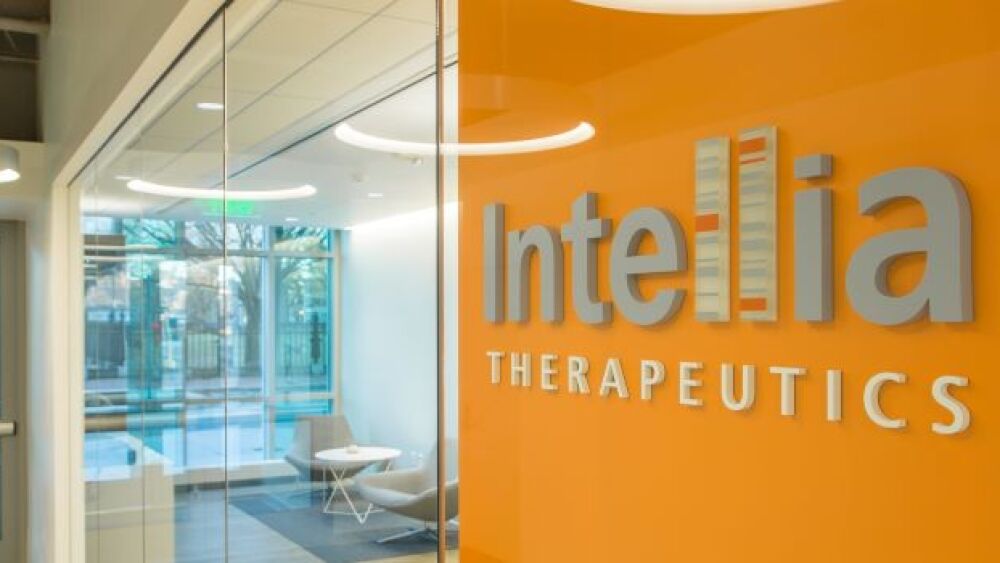Intellia Therapeutics presented preclinical data of its non-viral genome editing platform at the Keystone eSymposium: Precision Engineering of the Genome, Epigenome and Transcriptome.
Cambridge, Massachusetts-based Intellia Therapeutics presented preclinical data of its non-viral genome editing platform at the Keystone eSymposium: Precision Engineering of the Genome, Epigenome and Transcriptome.
The presentation established proof-of-concept of the technique in bone marrow and hematopoietic stem cells (HSCs) in mice. It’s the first demonstration of the platform in vivo in tissue outside the liver.
“This new data supports the possibility of delivering a safer solution to treat blood disorders, including sickle cell disease, by avoiding the need for bone marrow transplantation,” said John Leonard, Intellia’s president and chief executive officer. “We’ve demonstrated we can expand our in vivo capabilities originally designed for liver applications to other tissues and achieve therapeutically meaningful levels of gene editing, reinforcing the promise of Intellia’s modular platform to transform the lives of people living with genetic diseases.”
CRISPR-Cas9 genome editing is the current approach to potentially treating hereditary blood disorders such as sickle cell disease (SCD) via genome editing. But, the current approaches for ex vivo (outside the body) manipulation of hematopoietic stem cells and toxic myeloablative transplantation—where high doses of chemotherapy and radiation are used to destroy, for example, cancer cells prior to a stem cell transplant—are barriers to widespread adoption.
Intellia’s approach is in vivo—inside the body—where CRISPR-Cas9 is delivered systemically into patients. This decreases the risk, cost and barriers to treatment seen with current ex vivo genomic modification.
Intellia’s non-viral delivery platform allows for systemic administration of CRISPR-Cas9 to disease-relevant tissues. It uses lipid nanoparticles (LNPs), which are similar to the delivery systems for the Pfizer-BioNTech and Moderna COVID-19 vaccines. In Intellia’s preclinical experiments, the LNPs allows for transient and well-tolerated delivery of CRISPR-Cas9 to murine and human hematopoietic stem and progenitor cells in mice. They observed editing in whole bone marrow as well as HSPCs that was dose dependent. In addition, the editing levels in the HSCs lasted for more than one year after a single administration. And in transplantation studies, the in vivo edited HSPCs continued to offer long-term, multilineage reconstitution of bone marrow.
The company is working on this preclinical work toward a possible cure for SCD. It received a grant from the Bill & Melinda Gates Foundation in November 2020 to advance the work from preclinical validation into the clinic.
“We are excited to receive funding from the Gates Foundation to take the first steps toward development of a potential in vivo non-viral CRISPR-Cas9-based cure for SCD,” said Intellia’s chief scientific officer, Laura Sepp-Lorenzino, at the time. “Genome editing offers multiple opportunities to treat SCD as shown by encouraging emerging clinical data. Our goal is to deliver on the already demonstrated promise of CRISPR-Cas9, but avoid the severe complications of bone marrow transplantation that may limit the usefulness of current approaches. Intellia’s ambition is to use our non-viral in vivo platform to create an innovative treatment for blood disorders, that is scalable and can overcome the challenges inherent to ex vivo cell-based therapies for global diseases.”
On February 25, 2021, Intellia reported its full-year 2020 and fourth-quarter 2020 financials.
Leonard stated, “Looking ahead, we are focused on our three core priorities for 2021: clinical validation of our approach with NTLA-2001, advancement and expansion of our in vivo and ex vivo pipeline, and continued platform innovation. We have made steady progress in our global Phase I study of NTLA-2001 and look forward to sharing our first clinical data this year. Additionally, we are on track to submit first-in-human regulatory applications to begin clinical studies of NTLA-5001 for AML and NTLA-2002 for HAE, and we plan to nominate at least one new development candidate from our research portfolio.”
The company closed an underwritten offering of 5,513,699 shares of common stock in December 2020, raising $201 million. As of December 31, 2020, it reported cash, cash equivalents and marketable securities of $597.4 million.
Featured Jobs on BioSpace





